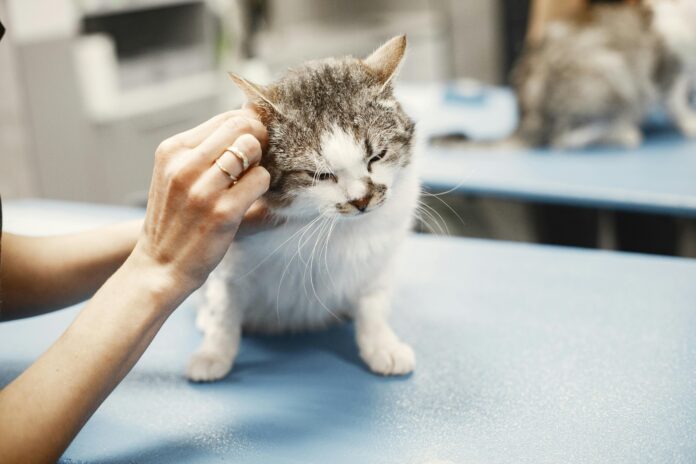 Photo by Gustavo Fring: https://www.pexels.com/photo/cat-getting-ears-cleaned-by-a-vet-6816836/
Photo by Gustavo Fring: https://www.pexels.com/photo/cat-getting-ears-cleaned-by-a-vet-6816836/Ticks are often mistaken for growths or skin tags but they’re quite different. They are smooth and shiny on the surface and we can see their black spindly legs if we look closely. If left on the pet, they engorge with blood and grow quickly over a period of about 4 or 5 days before falling off.
Ticks are very common where deer graze, so places like woodlands as well as grassy fields. While they’re there all year, we see the most in the spring and summer here in the UK.
Most ticks don’t carry disease but there is a risk of your dog contracting tick-borne diseases such as Lyme disease. These diseases can make your dog very poorly, with signs including a fever and lameness. Importantly, these diseases can potentially be spread to humans’.
One of the common symptoms of Lyme disease in humans is a ‘bullseye’ rash at the site of the tick bite. This usually develops 3 to 30 days after being bitten however is not always present in all cases. Other symptoms according to the UK Health Security Agency include fever, headache and fatigue, a facial droop, nerve pains and numbness or tingling in the hands or feet.
‘If your dog does become unwell after a tick bite, it can take about 1 to 3 weeks for signs to develop.
If an owner sees a tick, we advise them to remove it immediately. This means using a tick remover or tweezers to twist the tick until it lets go, then killing it in an eggcup of rubbing alcohol. If not comfortable doing so, bring them to the nearest vet and they can do it for you.
If your dog has had ticks before or lives in an area with ticks, you should keep them up to date with a Preventative such as a monthly Frontline spot on or Seresto collar.’
Help keep news FREE for our readers
Supporting your local community newspaper/online news outlet is crucial now more than ever. If you believe in independent journalism, then consider making a valuable contribution by making a one-time or monthly donation. We operate in rural areas where providing unbiased news can be challenging. Read More About Supporting The West Wales Chronicle


























